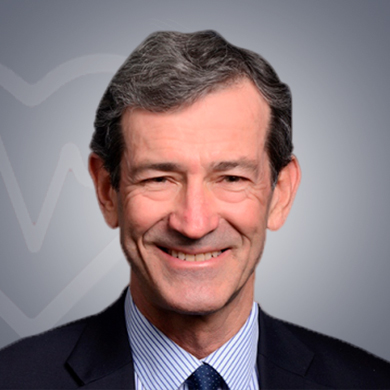
of experience
Speaks: English
Here is the list of some of the conditions Dr Andrew Stewart treats:
Some women require surgery to remove the entire breast through mastectomy. The surgeons remove the breast tissues including nipple and the skin and the tissues that have the chest muscles. You may opt for breast reconstruction after a mastectomy.
There are around 200 different types of cancer and all these can cause different symptoms. The symptoms are often linked to some cancer types. The signs could also be general, including weight loss, fatigue, and unexplained pain. Some of the signs and symptoms of different types of cancer are as follows:
Dr Andrew Stewart works from 11 am to 6 pm on all days of the week, except Sunday.
Dr Andrew Stewart performs a wide variety of procedures for cancer treatment. Some of these are
The doctor has rich experience in performing complex cases with accuracy. The surgeon has performed a large number of procedures with a high success rate and adheres to medical protocols to ensure patient safety and speedy recovery. The specialist is proficient in using the latest techniques to perform the procedures and ensures that the patient has a speedy recovery. There are two types of cancer surgery - minimally invasive surgery and open surgery. In open surgery, a surgical oncologist makes a large incision, to remove the tumor and some of the adjacent healthy tissues. Minimally invasive surgery involves laser surgery, cryosurgery, robotic surgery, laparoscopy, cryosurgery.

Share Your Experience about Dr. Andrew Stewart

A surgical oncologist is a doctor who removes the tumor and adjacent tissues through surgery. They also perform some types of biopsies to diagnose cancer. Surgical oncologists choose to perform surgeries to find out the locations where cancer has spread. While treating cancer, a surgical oncologist might remove cancerous tumors and surrounding healthy tissues, and nearby lymph nodes. The surgical procedures used will vary depending on the aim of the surgery. Surgical oncologists might do minimally invasive procedures or open surgeries.
The tests required before and during the consultation by a surgical oncologist include:
In most cases, surgical oncologists need to perform a biopsy in order to diagnose cancer. In this procedure, the doctor removes a part of the body tissues to examine under a microscope. The doctor then does other tests to check if the tissue is cancer.
You should see a surgical oncologist in case your primary care doctor refers you to one. The doctor may also tell you to visit a surgical oncologist for the diagnosis of cancer. Some specialized general surgeons can also perform surgery on various types of cancer. In the below-listed situations, you must seek assistance from a surgical oncologist: